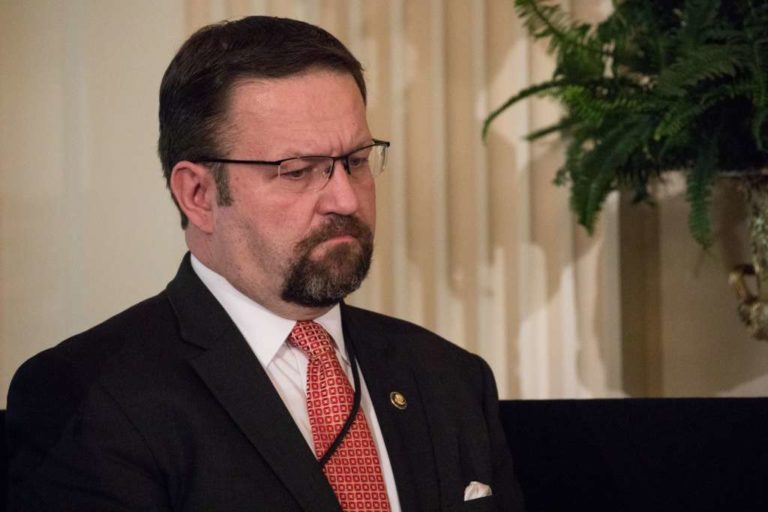 A group was assembled in front of the Shomrei Shabbos Shul in Borough Park, Brooklyn. The debate was heated and intriguing; at talk was the formation of a new third party. “School Choice Party” read the top of the petition a young man entreated me to sign. “Third parties in the United States are not that popular”, I thought to myself as I waved my hand in disapproval. Coincidentally my mailbox that day contained the tuition bill for the school year of 2012-2013; I was raised again. The next day my name was added to the thousands of signatures on the “School Choice Party” petition.
A group was assembled in front of the Shomrei Shabbos Shul in Borough Park, Brooklyn. The debate was heated and intriguing; at talk was the formation of a new third party. “School Choice Party” read the top of the petition a young man entreated me to sign. “Third parties in the United States are not that popular”, I thought to myself as I waved my hand in disapproval. Coincidentally my mailbox that day contained the tuition bill for the school year of 2012-2013; I was raised again. The next day my name was added to the thousands of signatures on the “School Choice Party” petition.
The debate over school choice has been raging ever since Milton Friedman, a Nobel Prize winning economist, floated the idea in 1955. In an article titled The Role of Government in Education, Friedman theorized that “competition is a way in which both public and private schools can be required to satisfy their customers”. Thus, he advocated for a system where “government, preferably local governmental units, [should] give each child, through his parents, a specified sum to be used solely in paying for his general education; the parents [should] be free to spend this sum at a school of their own choice, provided it met certain minimum standards laid down by the appropriate governmental unit.”
Education is essential for one’s future. Quality education leads to a good job, which enables a better social and productive life. At a speech at Booker T. Washington High School in Memphis, Tennessee, President Obama made some fundamental arguments on the importance of education. “I’m standing here as President because of the education that I received,” he declared. He elaborately pointed out that education facilitates the success of the United States of America, teaches one how to think critically and find solutions, and teaches discipline among other qualities. Indeed, recent unemployment data confirm that educated individuals fare better than their peers without advanced education. They are better protected at times of economic uncertainty and generally perform better in unemployment reports. Additionally, comprehensive schooling results in higher earnings and better income opportunities. However, as Albert Einstein once said, “education is what remains after one has forgotten what one has learned in school.” Thus, schools should yield maximum efficiency and productivity by applying the best methods possible; yet, it cannot jeopardize the public education or increase costs.
The public schools in the United States are failing, and change ought to be enacted. U.S. Secretary of Education Arne Duncan called for critical reforms to the nation’s public education system at a talk at the Harvard Graduate School of Education. “Where we are at today is not good enough for our nation’s children, it’s not good enough for our cities and states, and it’s not good enough for our nation’s economy,” said Duncan. In fact, according to the Obama administration, an estimated 82% of the nation’s public schools fell short of federal standards last year. Choices like as charter schools and vouchers will lower the public expenditure and drive reform of public schools.
Students attending private and charter schools perform better academically than their counterparts in US public schools. Paul E. Peterson and Elena Llaudet published an article which concludes: “Based on the 2003 NAEP data, when student characteristics are estimated consistently across school sectors, a private-school advantage relative to public schools is evident at all grade levels in both math and reading in all estimations but one”. Caroline M. Hoxby, a professor at Sanford University and former faculty member of Harvard University, has done extensive research on school choice. She exclaims: “I found that charter students were 3.8% more likely to be proficient on their state’s reading exam and 1.2% more likely to be proficient on their state’s math exam than students in the nearest regular public school. These differences rise to 5% in reading and 2.8% in math if we compare charter schools to the nearest public school with a similar racial composition. In fact, the more similar the schools are, the more positive the differences.” Additionally, studies show that students who attend private or charter schools are more likely to graduate high school and enroll into college.
Critics allege that private and charter school will erode public schools; yet, statistics show that public schools flourish when competing with private schools. An evaluation of student-level data in Florida compared the results of disabled children in public schools and those enrolled in the McKay Scholarship Program for Students with Disabilities. It confirms: “our results from evaluating Florida’s McKay program provide additional evidence that rather than being harmed, public schools respond to the challenge of exposure to school choice by improving the education they provide”. “Milwaukee public students themselves are performing at somewhat higher levels as a result of competitive pressure from the school voucher program,” states an assessment report of the Milwaukee Parental Choice program conducted by Patrick J. Wolf.
With the national debt at record high levels, politicians seek to cut government spending. Funding for education, however, is necessary for the country’s future and economy; yet, school choice can help the government save money. A survey conducted by the Fraser Institute attested that “the average cost of tuition at inexpensive private schools was $4,398 per year, while the cost of providing public schooling per year was more than $8,000 per child in Ontario”. Consequently, Wolf also concludes that “the Choice program saves the government money — nearly $52 million in fiscal year 2011.” A study conducted by David F. Salisbury, director of the Cato Institute’s Center for Educational Freedom, found that “the majority of private elementary schools charged $5,000 or less per student per year.” He affirms that “a voucher amount of $5,000 would give students access to most private schools. Since average per pupil spending for public schools is now $8,830, most states could offer a voucher amount even greater than $5,000 and still realize substantial savings”.
An important step to fix the economy is to improve education. While the No Child Left Behind Act largely overhauled the educational system in the United States, much improvement is still needed. Charter schools, vouchers and tax credits will fundamentally change American schools and make them productive. Giving more choice to parents will increase the effectiveness of education and lower the staggering deficit. Parents should have the choice to choose the school that their children will attend. The government spends more money on a child attending public school than one pays for tuition in a private school that yields better results. While parents must ensure that their children receive adequate education, it should be their choice. Incentives should be given to schools with a higher curriculum and tax credits should be given to those children that fare better and achieve satisfactory grades. Vouchers would encourage competitiveness between private and public schools and America will regain its former reputation.
Orthodox Jews struggle to pay tuition Yeshiva and Beis Yaakov administrators work tirelessly to gather the payroll, yet our politicians in Albany sit idly. They use the Blaine Amendment as a pretext for their failure to appropriately represent their constituents. However, Marion Superior Court Judge Michael Keele ruled that Indiana’s sweeping voucher program was constitutional despite the Blaine Amendment in the state’s constitution. As a result, I will be pulling the lever for the “School Choice” candidates this November and plea from you to do the same. Thousands of votes for a relatively new third party will send a strong message that will reverberate across Albany.
Dave Hirsch is a political analyst and columnist. He can be reached at[email protected]
NOTE: The views expressed here are those of the authors and do not necessarily represent or reflect the views of YWN.











7 Responses
Sounds like someone flunked civics (or perhaps is a new immigrant from Eretz Yisrael where you have a system designed to allow “new” parties).
To get “school choice” in a way that benefits us, focus on how to make “school choice” benefit the rest of the community (the African Americans, Hispanics, professional teachers many of whom are frei Jews, etc.).
Then ask whether you would want to send your child to a school that in return for being eligible for government funding, turned over much of the curriculum to the government. Also ask if you are willing to send your child to a school with non-Jews. The last is important, since a single gender school with privately financed religious or ethnic tracts would be a lot more likely to be funded if it included multiple ethnic and religious groups.
Children going to schools run by various religions, will turn out to be very extreme and fanatical in their religion, and it will be Goirem to alot of Retzicha and Shfichas Domim.
The more fanatic a school is, the more money it will get from Saudi Arabia’s Shieks.
akuperma #1,
the same way a private store can say who comes in and who doesn’t, and you still can buy food with food stamps in such a store, so too the government can give you a voucher for education to be educated in A PRIVATE setting.
And the same way in some states you can get a voucher for home schooling, a private school is no worse…
Nice idea, but it will never work. At least not for religious Jews. When the subject of vouchers came up in NJ a local school administrator was asked his opinion on them. He plainly stated that the price that tuition prices would rise by the exact amount of the vouchers. Are you hearing this? We would all be paying the SAME tuition. Even though there was a voucher in place. For all the complaining out there, this is totally our fault. In yesteryear Jewish kids went to public school and had religious studies afterward or whenever, on their own time. Now I of course recognize that public schools today are not what they were 30 years ago. But I think that we have contributed to that. Moving on, there is also the feeling that we want to be a separate from non-Jews as possible. That we want to limit our interaction with those that do not share our values. I can appreciate that. But this leaves us founding our own schools and having to pay for not only torah studies but secular as well. And we have already paid for those studies in property and other taxes. What are we to do? We are hammered from both ends. We want to uphold our torah values but we dont have the money to pay exorbitant tuitions. But as I said, we have done it to ourselves.
#3- and have you noticed how the government welfare food programs (WIC and food stamps) tell you what you can spend it on and what you can’t.
So apply that to education – here is a free science teacher to teach your kids all about science (evolution, sex, etc.)– genuine public school quality. Imagine what they do to history?
In fact in many countries the government does pay for the secular education, and the frum Jews there manage to survive it. Those families who send their children to school that focus on college prep probably won’t notice a difference, but the more yeshivish families would. And of course, we should look at the situation in Eretz Yisrael where government funding of Torah education comes with a price (and one which may be getting much higher in the near future).
Sometimes, freedom means being able to say “no” to becoming a client of the state.
#4, your claim that tuition would rise by the amount of the voucher is obvious nonsense. A Jewish school is not a profit-making venture; they set the price as low as they can without having to close, so why would they raise it just because parents have vouchers? Your cynical view is without foundation.
I would be interested to know how students in yeshivas, BY’s and other frum private schools perform on standardized tests compared to Jewish students in public schools and non-frum private schools.
In my limited experience, students in frum schools are noticeably weaker in English. I assume this is in part because their teachers, parents, peers and communities tend to speak Yinglish, but it may also be the result of a weaker curriculum or an under-appreciation of the high level of precision that is achievable in standard English as compared with other languages. My concern, in part, is that frum schools underestimate the importance of secular subjects – math, English, US and world history, among others – or consider secular subjects a distraction from the important mission of frum schools from teaching Torah, Talmud and other Jewish portions of the curriculum.
I certainly appreciate the burden of frum-school tuition, but I fear that public subsidies – whether to the schools or to the students and their parents – will only act as a floor on tuition costs and further drive up the cost of private education. In the past 30 years, tax dollars have been used to enable students to pay private college tuition, and the ginormous rise in college tuition is a discouraging sign that public subsidies have adverse effects on tuition pricing.
For frum communities, protection against tuition increases can come from open, good-faith and honest efforts between tuition payers, i.e., parents, and tuition receivers, i.e., the rabbis and other educators who run frum schools. I do not think that more taxpayer subsidies alone will provide relief for parents burdened by frum-school tuition.